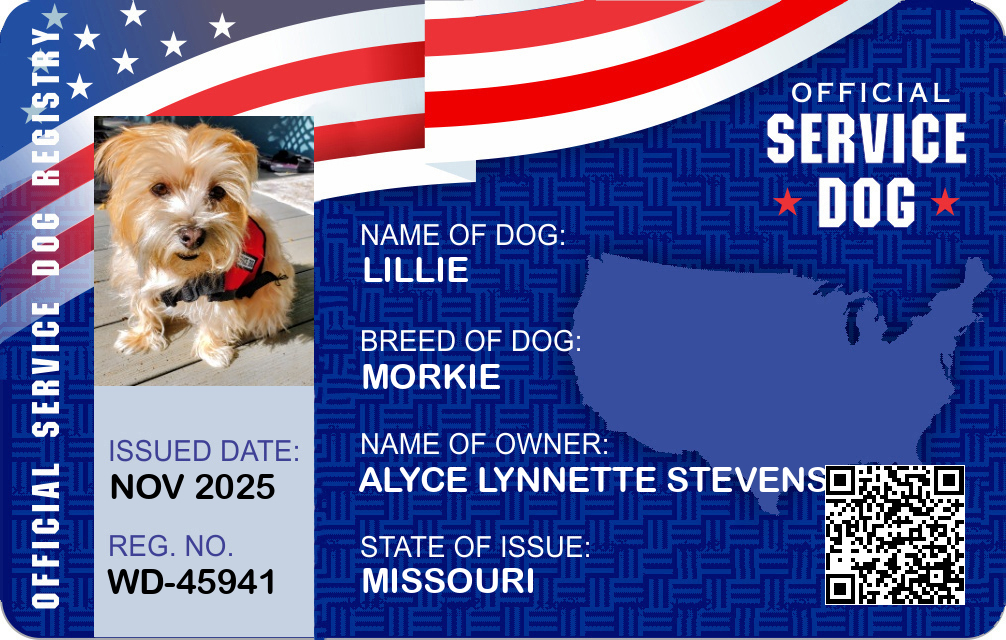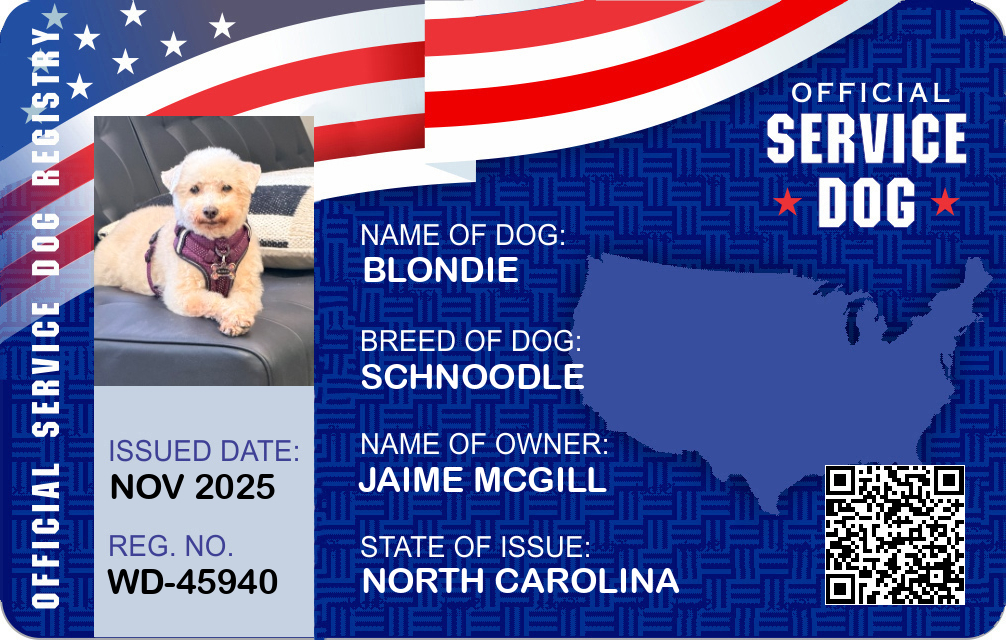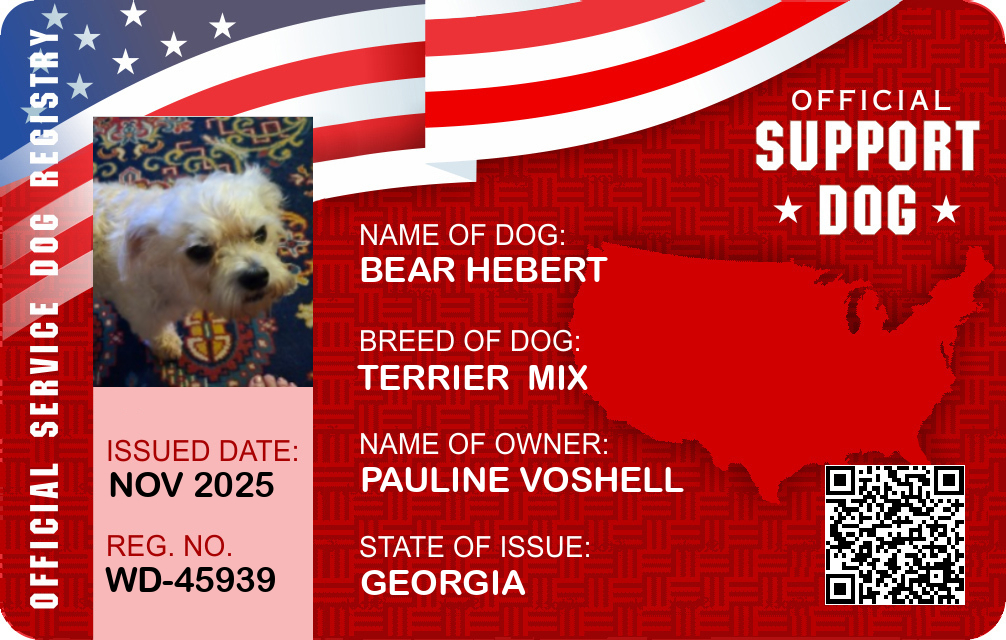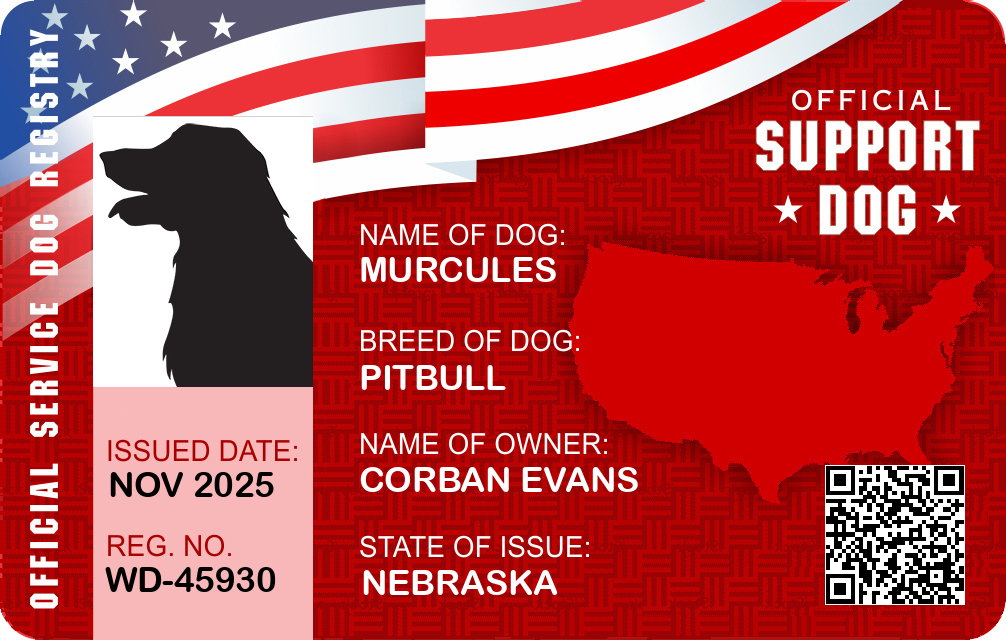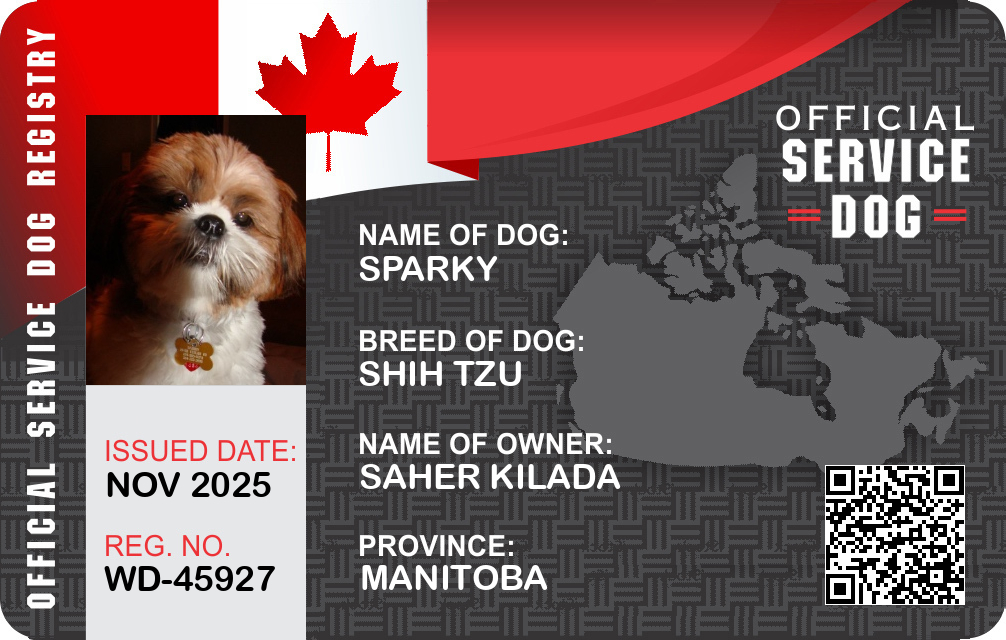New Hampshire Service Dog Laws
Register Your Dog
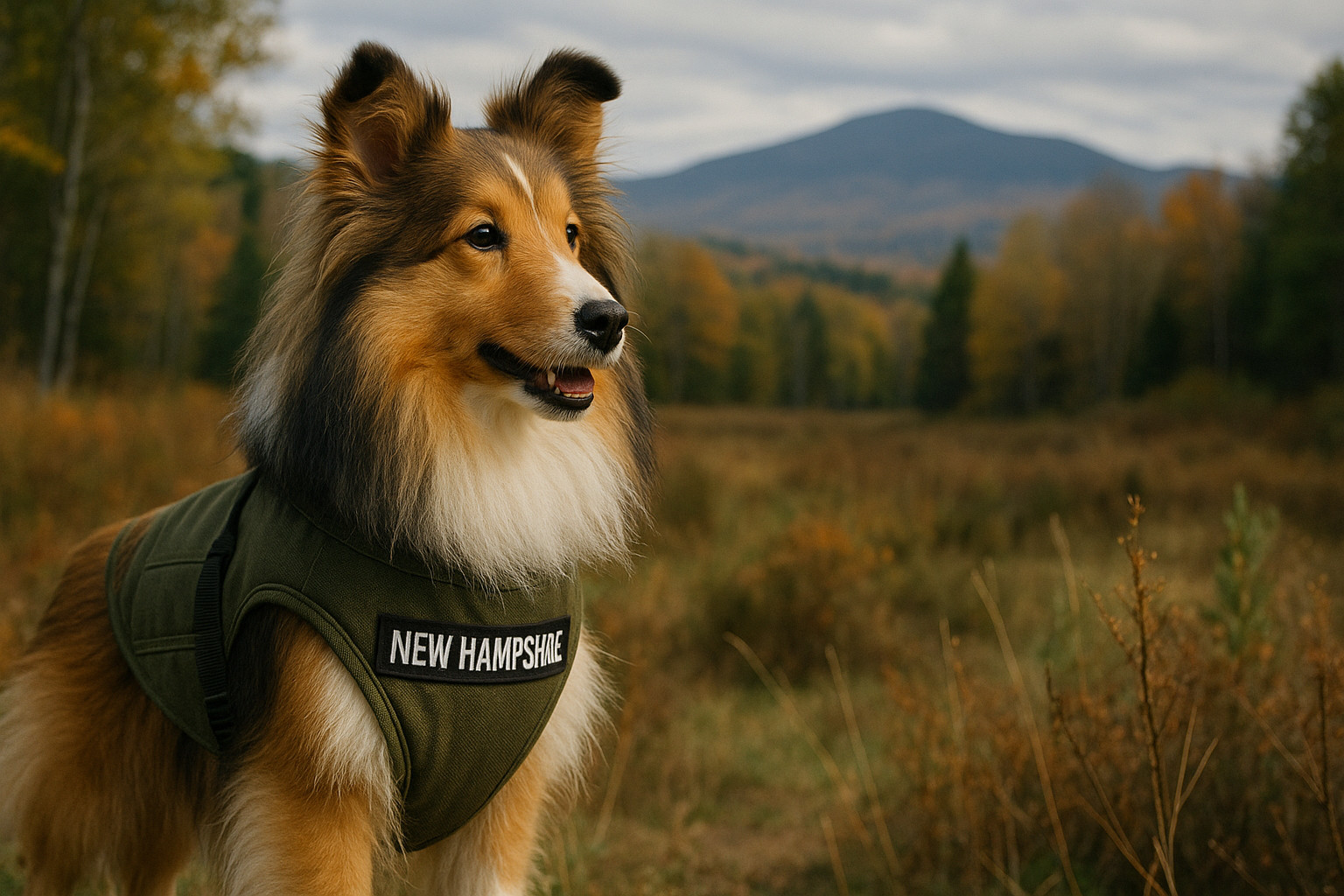
Overview of Service Dog and Legal Definitions in New Hampshire
Understanding the legal landscape surrounding service dogs is crucial for both handlers and those operating businesses and facilities in New Hampshire. While service dogs serve indispensable roles in enhancing the mobility and independence of individuals with disabilities, legal definitions and protections can vary.
What is a Service Dog?
According to the Americans with Disabilities Act (ADA), a service dog is specifically trained to perform tasks directly related to a handler’s disability. This might involve guiding individuals with visual impairments, alerting those with hearing loss to sounds, pulling a wheelchair, or providing stability for individuals with mobility challenges. Unlike emotional support animals or therapy dogs, service dogs are recognized by their ability to perform tangible and crucial tasks that address specific disability-related needs.
How Service Dogs Differ from Other Types of Assistance Animals
Assistance animals encompass a broad category that includes service dogs, emotional support animals (ESAs), and therapy animals. While service dogs are trained to perform specific tasks, ESAs provide comfort and companionship, and therapy animals offer therapeutic benefits. Crucially, ESAs and therapy animals are not granted the same legal access rights as service dogs, highlighting the distinct role and privileges service dogs have in public and private spaces.
Key Federal Laws Affecting Service Dogs
#### Americans with Disabilities Act (ADA) The ADA offers comprehensive protection for service dog handlers by ensuring access to public spaces without discrimination. This extends to areas like businesses, transportation, and government facilities. Under the ADA, businesses may only ask two questions regarding the necessity and functions of the service dog. No further inquiries, like a requirement for documentation, are allowed.
#### Fair Housing Act (FHA) The FHA ensures individuals with disabilities have equal housing opportunities. Landlords must provide reasonable accommodations, which includes permitting service dogs regardless of pet policies. This means waiving pet fees and relaxing size or breed restrictions for service animals.
#### Air Carrier Access Act (ACAA) The ACAA mandates that airlines must accommodate service dogs both in the cabin and without additional charges. Airlines may require documentation for flights longer than eight hours or if there is a legitimate doubt about the dog’s training.
State-Specific Service Dog Laws in New Hampshire
While federal laws provide the foundation for service dog regulations, New Hampshire has its own statutes that operate alongside. New Hampshire law aligns closely with federal protections, ensuring service dog handlers are not discriminated against in public and private settings. Specifically, state laws reinforce public access rights and emphasize penalties for misrepresenting pets as service animals, maintaining integrity within the system.
Housing Rights and Responsibilities
Under both federal and New Hampshire laws, housing providers must offer reasonable accommodations for service dogs. This encompasses exemptions from pet fees and restrictions, as service dogs are not considered pets. Rental agreements, therefore, must reflect these allowances. Additionally, handlers are responsible for any damage caused by the service dog, consistent with terms applied to any damage inflicted by tenants.
Public Access and Accommodation
In New Hampshire, handlers are granted access to any place open to the general public, such as restaurants, hotels, retail stores, and educational institutions. Businesses may only make limited inquiries about the service dog and cannot request proof of the dog’s certification or training. The goal is to create an inclusive environment where individuals with disabilities can navigate spaces with minimal barriers.
Transportation and Travel Rules
Transportation services, including public buses and railways, must accommodate service dogs under New Hampshire law. The same applies to taxi and rideshare services, which cannot refuse service or charge additional fees for transporting a service dog. Airlines, already governed by the ACAA, continue to abide by both federal and state stipulations to ensure service dog handlers are not unjustly burdened during travel.
Employment and Workplace Considerations
Employers in New Hampshire cannot discriminate against employees or applicants who require service dogs as reasonable accommodation for their disabilities. The ADA guides employment policy by mandating adjustments in the workplace to facilitate the individual’s productivity, such as modifying work schedules or providing a designated area for the service dog.
Navigating the documentation landscape is essential for service dog handlers in New Hampshire. While official certification is not strictly required, understanding the typical documentation requests and how to handle them can facilitate public interactions and prevent misunderstandings.
Service Dog Documentation and Who Can Issue It
The requirement for documentation varies between settings. In housing, for example, while certification is not mandatory, providing evidence of disability-related need can be advantageous. Most documentation regarding service dogs, when necessary, can be issued by healthcare professionals familiar with the handler’s disability.
Landlord, Business, and Provider Verification Rules
Under both ADA and New Hampshire law, neither landlords, businesses, nor providers may demand proof of a service dog’s certification or training. Verification is limited to two inquiries about the necessity and function of the dog. Attempting to demand additional paperwork or impose fees constitutes discrimination and may be legally challenged.
Rights, Limitations, and Legal Risks
A robust understanding of rights and limitations associated with service dogs fortifies handlers against potential legal risks and ensures compliance with state and federal regulations.
Rights Service Dog Handlers Have in New Hampshire
New Hampshire service dog handlers can expect:
- Unrestricted access to public facilities and businesses
- The right to housing accommodations without pet fees
- Ability to travel with service dogs on public transit and airlines without extra charges
- The assurance of security in employment with service dogs present
Limits on Service Dog Protections and Common Restrictions
While service dogs have extensive access rights, there are limitations. Handlers could be asked to remove a service dog if it is out of control and the handler does not take effective action to address the situation. Furthermore, if a service dog is not housebroken, the facility, airline, or housing provider may exclude it from the premises.
Penalties for Fraud or Misrepresentation
Misrepresenting a pet as a service dog is a legal offence in New Hampshire and can carry penalties including fines. This deterrent is designed to prevent abuse of service dog identifications and uphold the rights of legitimate service dog handlers. Businesses retain the right to challenge fraudulent claims and take appropriate action.
Practical Guidance for Service Dog Handlers in New Hampshire
With the interplay of federal and state laws, it is crucial for handlers to adhere to best practices ensuring compliance while safeguarding their rights.
How to Qualify for a Service Dog Legitimately
Qualification involves:
- Receiving a diagnosis of a disability that can be mitigated by a service dog’s assistance
- Partnering with reputable training organizations or trainers who can tailor the dog’s training to your needs
- Understanding and abiding by the rights and responsibilities under ADA and New Hampshire law
How to Talk to Landlords, Airlines, and Employers
Clear, informed communication is pivotal:
- Approach conversations with a summary of rights under the ADA and New Hampshire law
- Be prepared to answer the permissible questions about the role and necessity of the service dog
- Maintain a professional and reasonable demeanor to avert unnecessary conflicts
Summary of Service Dog Laws in New Hampshire
For quick reference to the key rights, limitations, and practical tips, New Hampshire residents should particularly note:
- Service dogs must perform tasks directly related to the handler’s disability
- Handlers have comprehensive rights under ADA and New Hampshire state law for housing, public access, transportation, and employment
- No excessive documentation can be required by landlords, businesses, or public transportation services
- Misrepresentation of a pet as a service dog can result in legal penalties
- Effective communication and understanding of individual and service dog rights are essential for preventing and resolving disputes
This comprehensive guide empowers residents with the necessary knowledge to navigate the complexity of service dog laws in New Hampshire while promoting inclusivity and understanding in various domains of public and private life.



